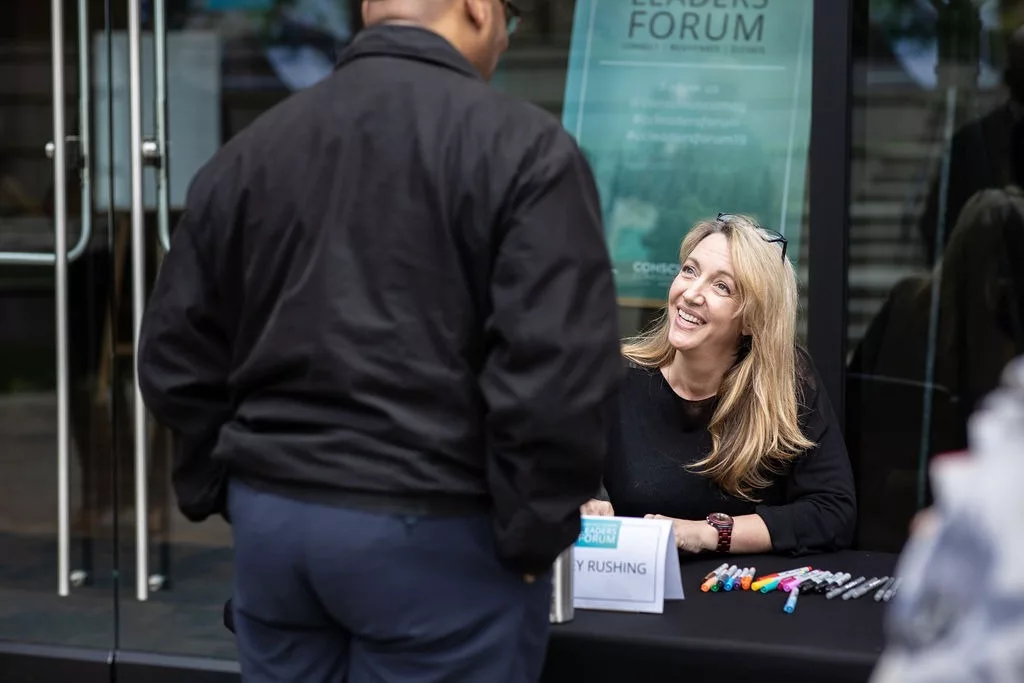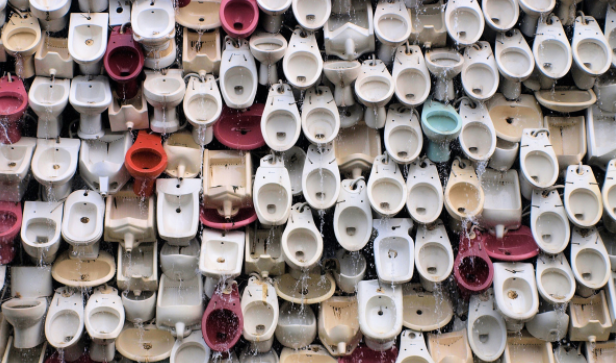A SOCAP Guest Post By Maura Dilley
Watch Michael Lindenmayer of the Toilet Board Coalition and Garima Sahai of Svadha talk toilets, sanitation, and untapped opportunities in emerging markets on stage at SOCAP16.
Get Excited About Toilets!
2.4 billion people live without reliable access to a toilet. The Toilet Board Coalition wants those with and without toilets to wonder what might happen if we all started seeing this problem as a possibility.
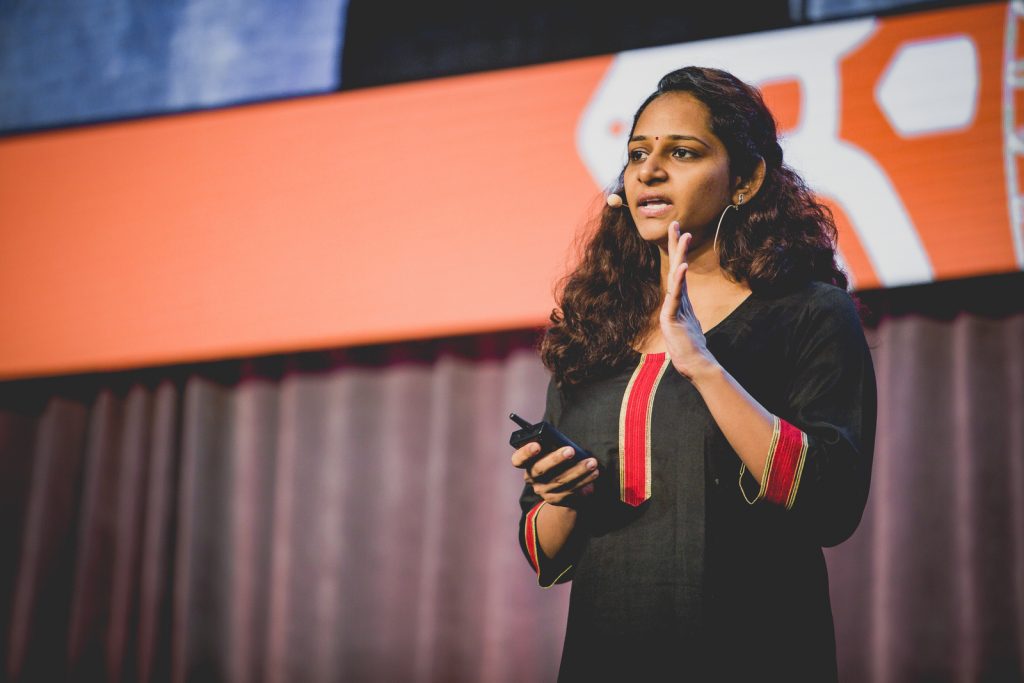
Delivering sanitation at scale requires innovation, and sustainable and resilient solutions. So how can we best address the market? The Toilet Board is working to support sanitation entrepreneurs creating business solutions for universal access to sustainable sanitation.
Enter Michael Lindenmayer, a toilet hacker leading the Toilet Board Accelerator. This group looks at how to accelerate sanitation business models and entrepreneurs with prospect for scale and it also invests in new solutions. The Accelerator takes a strategic look at opportunities together with other essential base-of-pyramid services, avoiding redundancy and drawing a crowd.
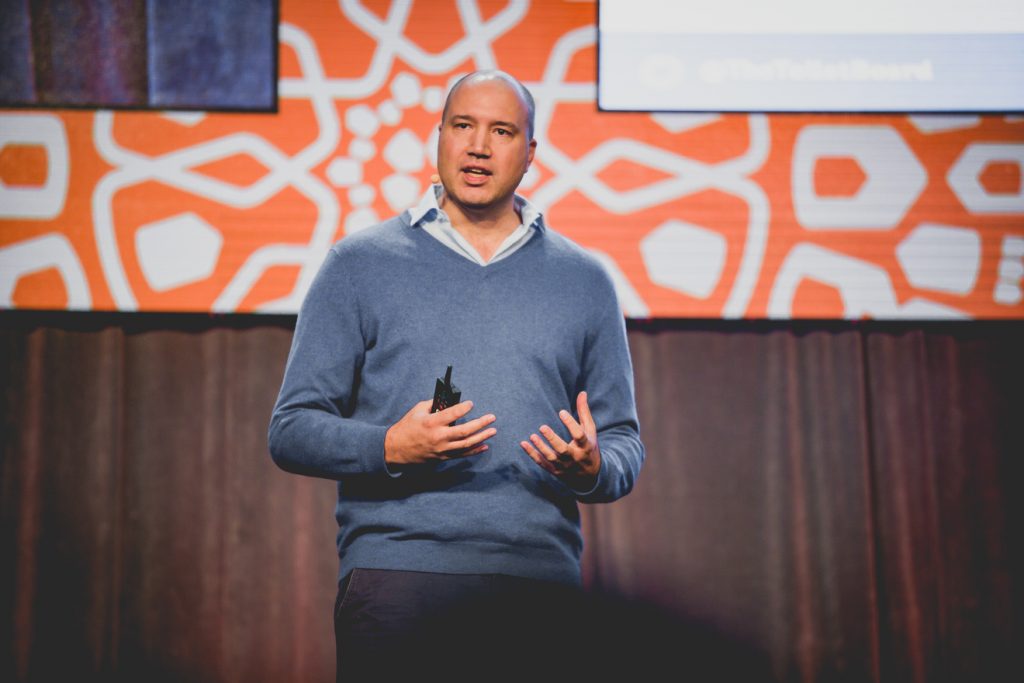
In many parts of the world, toilets are just a dumb bucket.
What if your toilet was a smart bucket? Linking mobile technology to toilets could provide health data for individual or public health monitoring. Reliable sanitation is paramount to community health in impoverished communities. Instant and passive analysis of stool samples through micro sensors could detect early warning signs of heart disease or stroke weeks in advance of an incident. Forewarning which could save lives around the world, for toilet users in all socioeconomic strata. This would require a source of power for these tech-enabled toilets, but the potential wealth of information may be worth the investment.
Since there ought to be a toilet for every few people in the world, there also ought to be toilet stalls, with roofs, everywhere. That roof space could be useful real estate for a cooperative need like mobile networks. In India, there are three cell phones for every one toilet. But rolling blackouts and down networks impair other development initiatives like mobile banking, health and education. The Toilet Board thinks that bundling together bathroom real estate with another need like cell towers might create sustainable synergy.
New sanitation solutions are already providing innovative ways to dispose of and repurpose waste. Much power in the developing world comes from coal or peat briquettes, which are environmentally destructive and pollute the air. As an alternative, Andrew Foote’s sanitation enterprise, Sanivation, is exploring briquettes made of human waste and baked with solar thermal. Instead of dumping the waste, Sanivation transforms it into a clean burning alternative to charcoal.
Talking about toilets means challenging the status quo of poverty, taboos around sanitation and seeing toilets as potential solutions to more than that one age-old problem. For a robust conversation on the future of smart cities, the Internet of Things and community development, toilets and sanitation entrepreneurs ought to have a place at the table equal to their value of the daily necessity they serve.
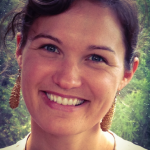 Maura Dilley is a systems-change strategist, writer and designer working at the intersection of ocean health and social enterprise. She is program director at Impact Alpha’s Financing Fish.
Maura Dilley is a systems-change strategist, writer and designer working at the intersection of ocean health and social enterprise. She is program director at Impact Alpha’s Financing Fish.
